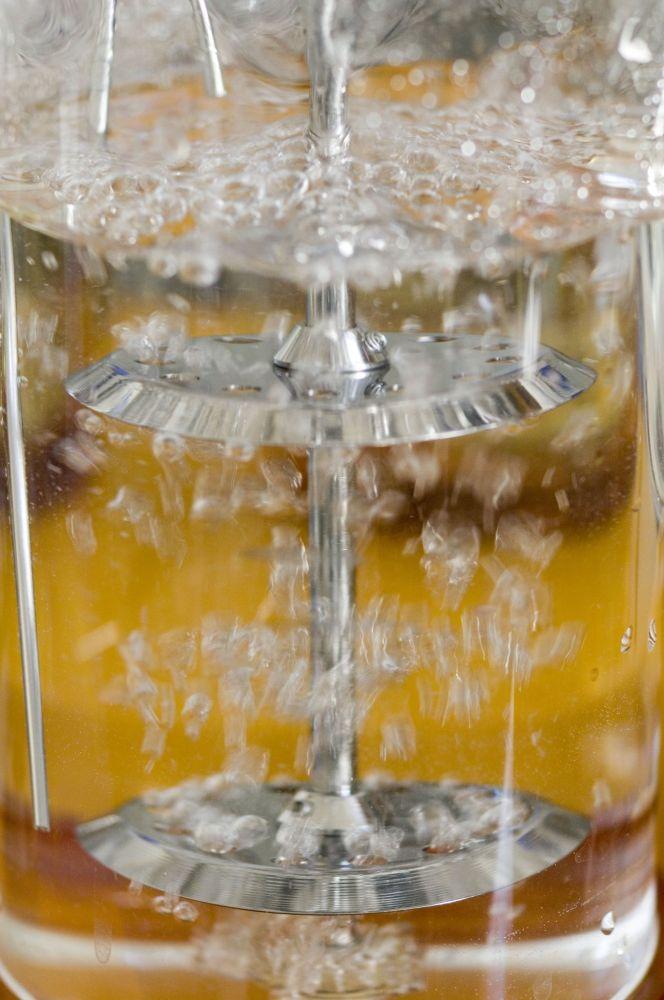
Faculty of Environmental Technology celebrates its 70th birthday
Prague, 1 September 2023 - Today, the Faculty of Environmental Technology (FET) celebrates 70 years since its founding. It is starting its “anniversary” academic year with a new Master’s programme, Sustainability and the Circular Economy, together with Bachelor-level climate change mitigation studies. FET graduates have long been ensuring that our communities are protected from pollution and that they have enough water, high-quality fuel, and new energy resources.
“Although FET is celebrating a milestone anniversary, in terms of its focus, it is a ‘faculty of the future’," says UCT Prague’s Rector, Professor Pavel Matějka. “Green chemistry, waste and recycling management, product ecology, climate change, and modern energy resources have an impact on every person on Earth. The Czech Republic is not the only country urgently needing quality experts in these areas,” adds Rector Matějka.
From 2018-2022, over 500 students at all levels graduated from FET, which offers courses in English in prestigious international programmes supported by the European Commission.
“The demand for our graduates on the job market is enormous. Graduates find jobs in the commercial and finance sectors or work at technology start-ups, in state administrative units, or conduct research,” says FET’s Dean, Professor Pavel Jeníček. “Our programmes are closely linked to showcase activities across UCT Prague and students have the opportunity to participate in grant-funded projects, results of which are later used or implemented in the commercial sector, at governmental ministries, or leveraged in cooperation with international institutions."
FET has an extensive research track record. Scientists have, for example, investigated using carbon dioxide for the production of synthetic natural gas, studied antibiotic resistance in wastewater, observed water systems under climate change conditions, and developed 21st century materials for the energy sector. Research has also been conducted on the recycling of waste plastics, the removal of hazardous waste substances from the environment, and the use of sewage sludge as a source of energy and phosphorus, both of which are critical EU commodities.
A new but even broader topic is sustainability. “Following the Nobel Prize-winning theory of planetary limits, we are developing concepts for integrating global limits into daily life, human consumption and, above all, into life cycle assessment,” says Vladimír Kočí from FET’s Department of Sustainability and Product Ecology. “We can also determine the carbon footprint and other environmental parameters for festivals and other cultural and promotional events. We cooperate with Colours of Ostrava, Rock for People, and similar festivals,” adds Kočí.
FET also has long-term ties to large companies in order to solve the problems they are facing. These include, among others: ORLEN Unipetrol, Net4Gas, ČEZ, Veolia, Škoda, and Čepro. FET also cooperates with partners around the globe such as the University of California Berkeley, California State University, and the University of Ghent.
History
FET grew out of the Faculty of Fuel and Water Technology, which was established on 1 September 1953. Starting in the mid-1980s, FET began focusing on environmental protection. On 1 July 1991, the faculty was renamed to today’s Faculty of Environmental Technology. At the time, it was the only Czech institution teaching Water Technology and Chemical and Energy Processing of Fuels. Important graduates include, among others, Milan Smrž (author or co-author of dozens of professional publications and patents and Vice-President of the European association, EUROSOLAR, which strives to completely replace fossil and nuclear energy sources with renewable ones) and Miroslav Kos (co-creator of a number of technological solutions for wastewater treatment plants in the Czech Republic, including updated Prague water lines, which was completed in 2019).
About UCT Prague
The University of Chemistry and Technology Prague (UCT Prague) is a natural center of study and cutting-edge research. One of the largest educational and research institutions in Central Europe, it specializes in technical chemistry, chemical and biochemical technologies, material and chemical engineering, food chemistry, and environmental studies. Remarkably, of the more than 4,000 students at the school, 700 are enrolled in PhD programs on average. Some of the study programs on offer at UCT are unique in the Czech Republic and are key to the future of the entire country. The school collaborates with more than 100 academic institutions, namely within Europe but also in the USA, Canada, Japan, Vietnam, and elsewhere.
Contact: Michal Janovský, spokesman, telephone: +420 733 690 543, e-mail: michal.janovsky@vscht.cz







